Event Project Management in Salesforce: 6 Stages to the Triumph
I can only imagine the scope of work Salesforce project managers had as they were getting ready for the biggest annual conference of the season – Dreamforce. That’s a hell of a project! On the face of it, there was lots of planning, adjusting, calling, canceling, stressing out…(you can insert your option). Let’s admit it, the event was a stratospheric success.
This is event project management in its purest form, and we are about to dig deeper. In this article, you’ll learn what hides behind it, what the main components for successful event project management are, and what the stages for planning an event project in Salesforce you should follow.
What is Event Project Management?
Event project management revolves around planning, organizing, troubleshooting, executing, and optimizing everything for an event. What types of gatherings can an event project manager take care of? A dime a dozen! Depending on the size of a project or a company, these can be conferences, webinars, in-person festivals, company-wide meetups, external events, and galas.
The key objective of event project management is to make the event run as smoothly as possible. But even that isn’t the main point. If orchestrated correctly, event management can be a part of risk management, too. That is, an event project manager should clearly assess unexpected scenarios and develop a backup plan.
The Main Components of Event Project Management
Having the exact number of event attendees and business cards printed is one thing. But have you ever thought about evacuation plans if it’s an in-person event or a separate room with an uninterrupted Internet connection if it’s an online event?
While all of the above are crucial, here is your go-to list for planning a Salesforce event:
- With Salesforce, you can arrange any type of event, such as virtual, in-person, or hybrid. It will depend on the event agenda and key requirements. The good thing is that all your data is kept securely in your Salesforce CRM, so you can access it anytime. Your event planning process won’t be affected!
How to Plan an Event in Salesforce in 2025: a Complete Event Management Process in 5 Steps
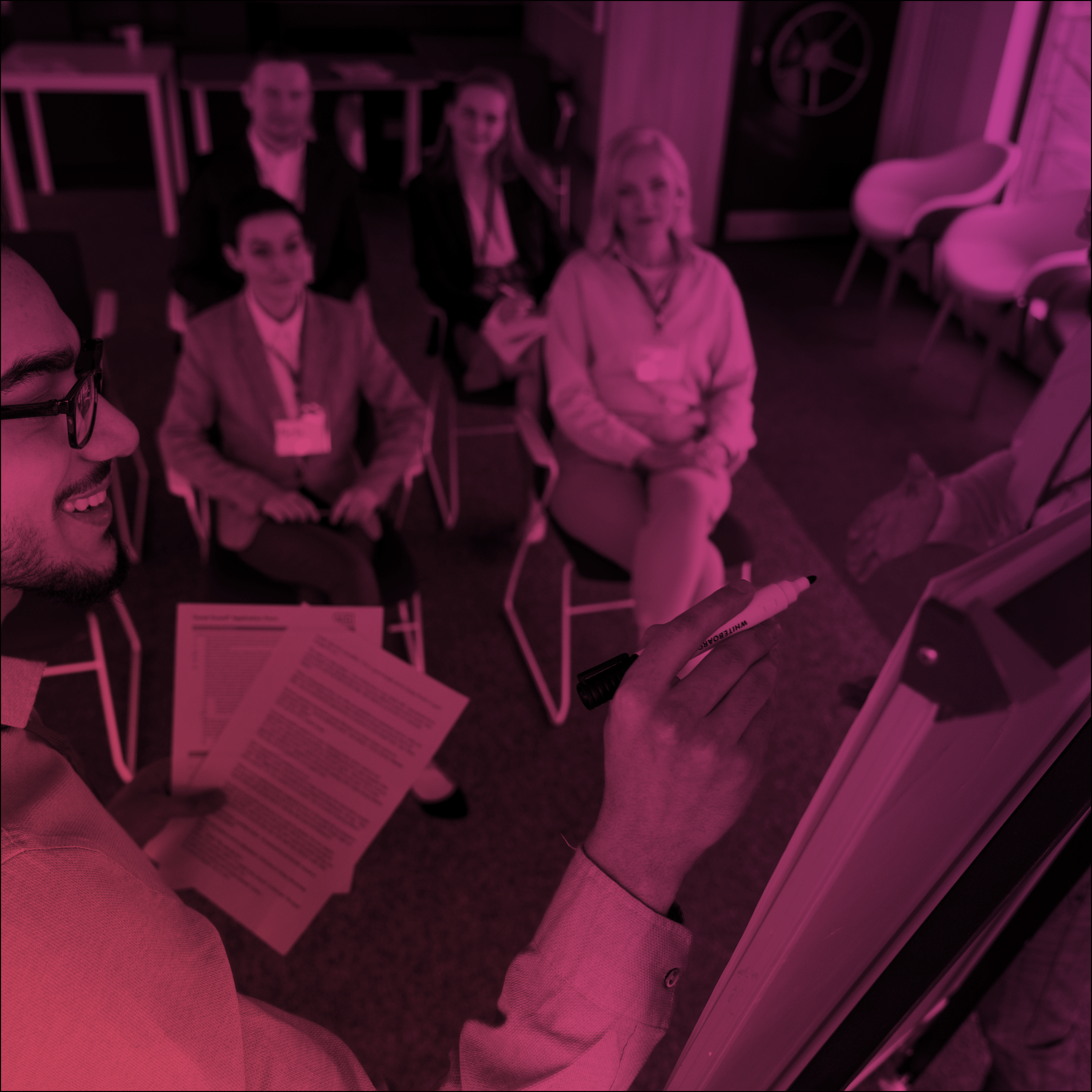
If it’s an in-person meeting, you have to book a venue beforehand. We know how challenging it can be firsthand! In September 2024, our team threw a nonprofit lunch in partnership with Salesforce in San Francisco. All of that happened during the Dreamforce week, so reserving a nice spot a couple of weeks prior was a tough nut to crack. Even though, we nailed it! Just look at this marvelous location and the city skyline.
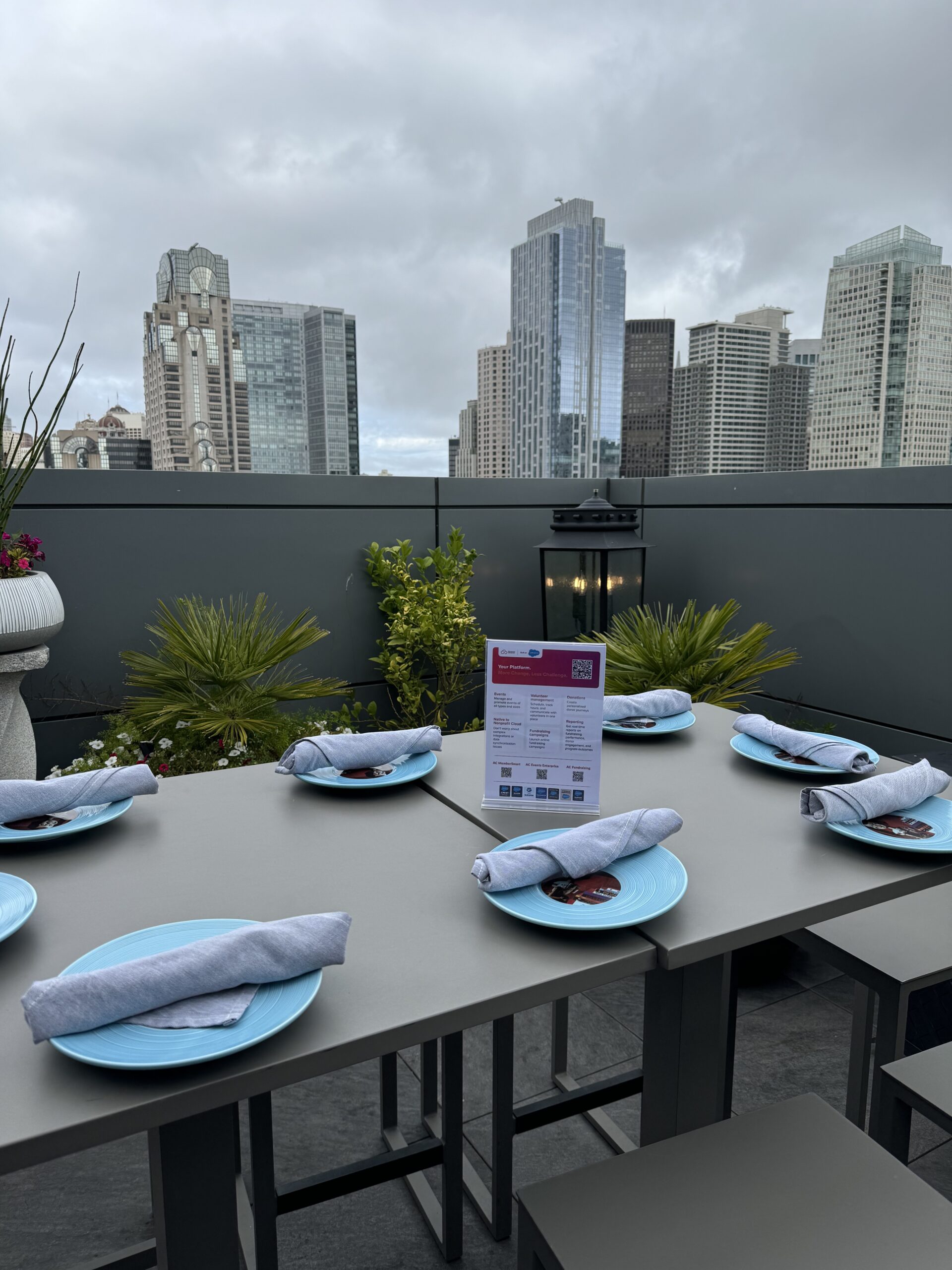
- Who is the most important cog in the event management mechanism? You guessed it right: attendees. To shape the greatest experience possible, provide them with a sleek registration process, payment options, directions, and other info. Otherwise, you’ll have to kiss them goodbye.
- Budgeting is paramount. Make sure your event project managers include every tiny detail into the event budget so that you can escape the unpredictable.
- Special events might require high maintenance. This is when sponsors enter the play. Inviting them helps you cover extra financials, increase reach & exposure (as sponsors often have their own networks and audiences), enhance value proposition, and improve community engagement. That’s a beneficial arrangement that ensures your event plan is stable.
- How will the (RIGHT) audience know about the event? With the help of a mighty marketing team. They can get the ads on social media going, create an information-packed event website, distribute printed promo materials, send newsletters, and perform other activities.
- Volunteers can be your invisible (or totally visible) part of the event team, taking care of such activities as catering, speaker rosters, technical questions, etc. Do not lessen their value! By the way, you can manage them within the Salesforce ecosystem as well. For instance, check out the AC MemberSmart app – it’s a 100% native-to-Salesforce solution that lets you manage volunteers in one place in Salesforce: track schedules, work hours, communications, assignments, volunteer performance, and much more.
AC MemberSmart
See product details- Good production is inevitable if you want your event goals achieved with flying colours. That is why you need to start small. First, organize dry runs with executive event managers and speakers a day or a couple of days prior. It’s in your best interests to train beforehand and polish all the materials. During this activity, you check WiFi, cameras, mics, slide decks, headphones, and any other detail needed.
Virtual Event Management: How to Plan a Virtual Event in Salesforce in 2025
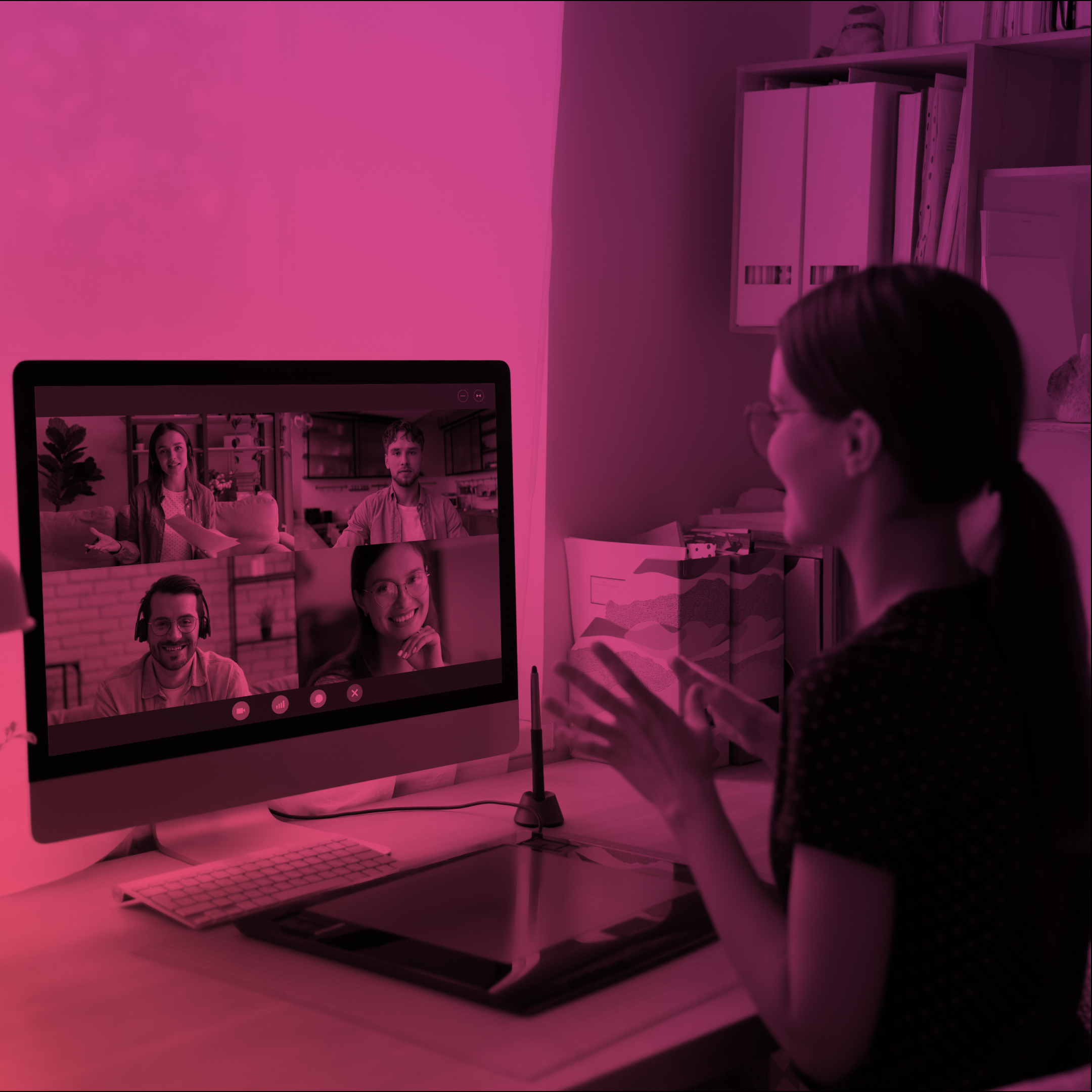
The Risks of Poor Event Management
Successful events don’t happen overnight. It is a strategic process that requires maximum effort. But no one is omnipotent. Besides, there is Murphy’s Law which means that if anything is supposed to go south, it sure will. This is when event risk management kicks in. What are the risks of poor event management and how you can combat them?
- Emotional damage an event manager could have if they set aside little time to plan and check everything. And that, in its turn, leads to miscommunication and chaos.
- Overspending that appears as a result to the wrong budget event plan.
- Delays which undermine company’s brand image and create other problems to all parties involved (such as ticket cancellation if it is an in-person event).
- Attendee dissatisfaction which could obviously bring about negative outbreak and feedback.
5 Stages of Event Project Management in Salesforce
Event project management offers the interlay of tasks, resources, and activities. Salesforce and its project management capabilities coupled with numerous native add-ons can streamline these processes. Explore how you can use Salesforce to surmount event management challenges within a project management framework.
Stage 1. Scope the Event Concept
Seasoned project managers will be with me on this one. The first thing we need to implement on the event execution plan is scoping it (we are treating our events as projects, remember?). What is scoping? It means that you define the objectives, budget, event organizers/responsibilities, timeline, and, of course, risks. For instance, you can develop a project timeline using Salesforce’s Gantt charts or calendar views, ensuring that an event is scheduled and prioritized effectively.
Another sub-step would be breaking down the event into bite-sized, manageable tasks. Create custom objects in your Salesforce org, such as Event Goals, and include fields like Target Audience, Key Performance Indicators, Expected Outcomes, etc. Then, assign them to a dedicated department or manager.
Last but not least, specify communication channels to reach event attendees (email, phone, social media). Once you’re done with that, try to schedule communication blasts throughout the entire event planning process.
Stage 2. Decide on the Event Project Methodology
Do the words agile and waterfall ring a bell? They describe project methodologies and standards that you can add to your event planner. Each has its unique approach, advantages, and disadvantages, making them suitable for different types of projects. But what is the difference?
The agile methodology (Scrum and Kanban involved) refers to iterative development, flexibility, and collaboration. Projects are broken down into smaller iterations (sprints or cycles), and teams can adapt to changes throughout the process.
In the waterfall methodology, project phases are sequential, like a waterfall flowing from one stage to the next. Once a phase is completed, it’s difficult to go back and make significant changes.
Consequently, if your event is really predictable, everything is set and done, you can go with a waterfall methodology. But in case you are not 100% sure of the event planning process and the concept is highly iterative, you safest bet would be agile.
Stage 3. Use the Right Event Project Management Tools
Imagine you are a director who should orchestrate a Salesforce event. While an event team is the musicians, a carefully picked project management tool is your baton. With it, you can set up a seamless event registration process, specify ticketing options based on your audience unique preferences, plan any type of events (online, in-person, and hybrid), and do so much more. Count your blessings as we’ve got just the “baton” for you – AC Events Enterprise by Advanced Communities.
Our native-to-Salesforce event management software is designed for those event planners who want their endeavour to be without a hiccup. Look at the event functionalities AC Events Enterprise delivers:
- A user-intuitive Event Creation Wizard – what is the most treasured feature any event management software should have? An event creation flow that won’t make your hair stand on end. With our Event Creation Wizard, you can create an event for your Experience Cloud site seamlessly, step-by-step.
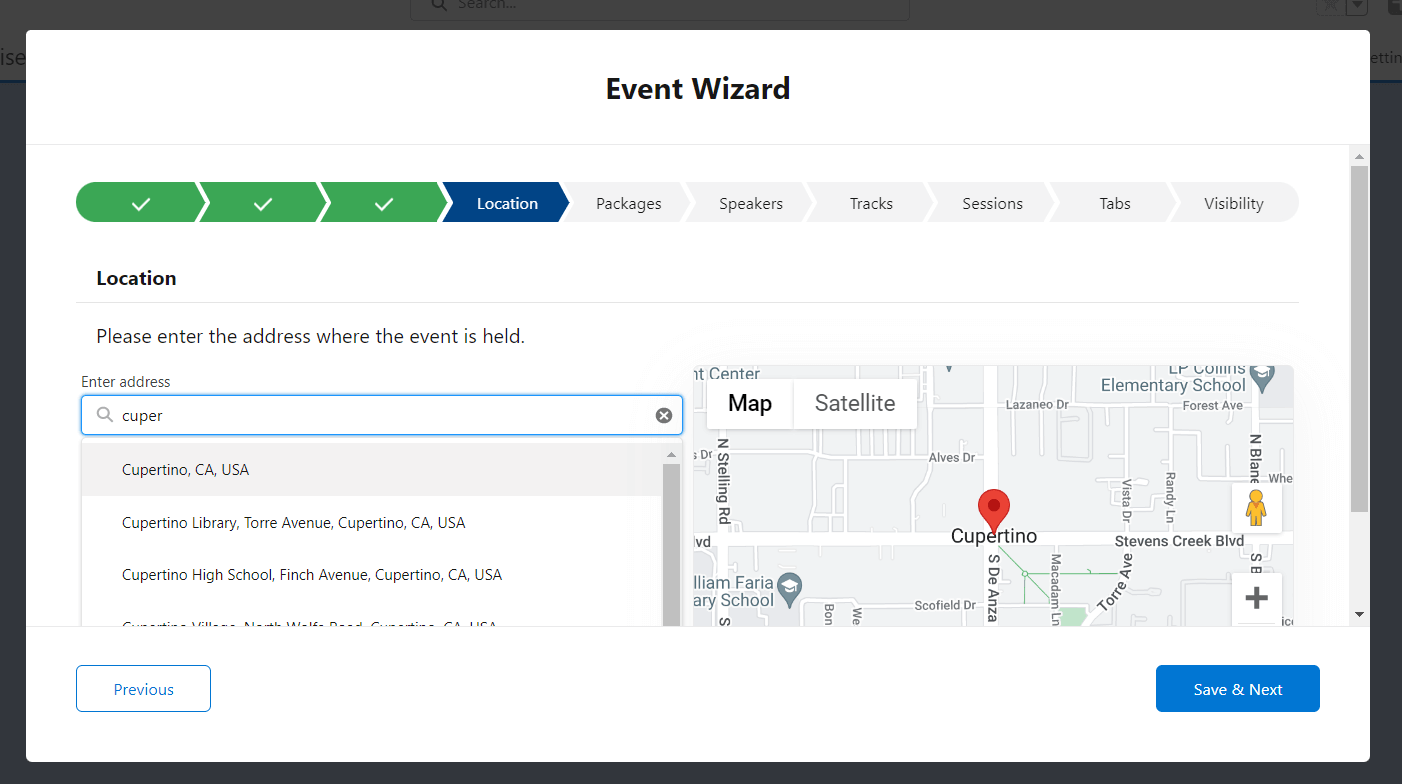
- Customizable event microsites – create your meeting, add its agenda, speakers, keynotes, and other general data. Besides, they are the perfect place to sell event tickets! So that your future events have a complete look, here is how we usually design an event microsite: we specify general data, desciption, agenda, speakers, map, and a CTA to register for the event. AC Events Enterprise couple with Salesforce capabilities make a powerhouse for an event manager!
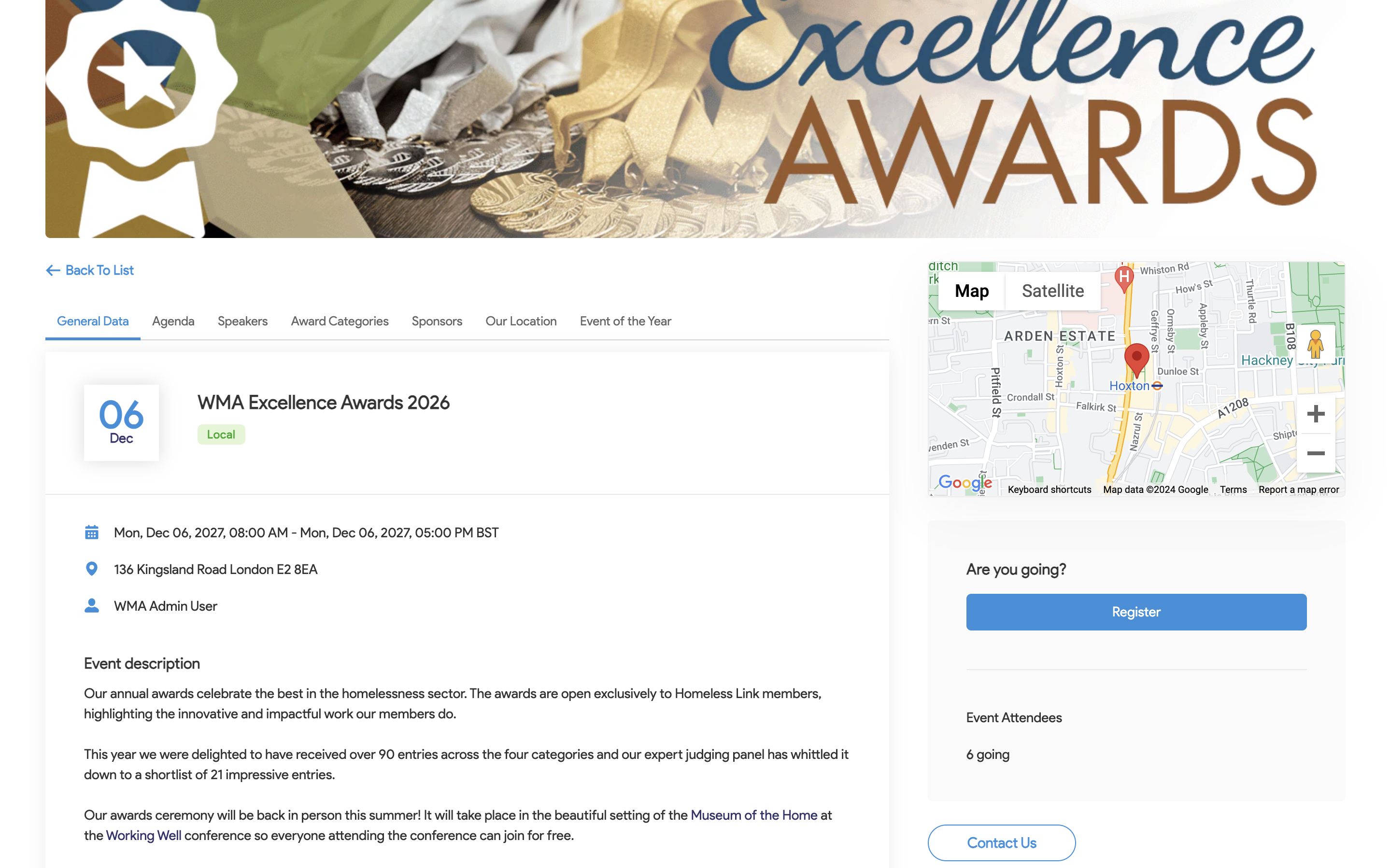
- Ability to create recurring events – how many duplicates do you usually have while creating an event on any platform? With AC Events Enterprise, you can organize as many events as you like, without unnecessary information and duplication.
The package has a huge potential you have got to see. Click the link below and download our product cheat sheet to see how it can streamline your event project management and offer valuable insights.
AC Events Enterprise
See product detailsStage 4. Introduce Speakers to the Audience
Every event has its speakers. Otherwise, it has no sense. As part of the event project management, you have to spread the word about your speakers in any possible way: on social media, newsletters, website banners, or on the event microsite you design for Experience Cloud.
This is our recent LinkedIn post about the upcoming ASAE Demo Days in October. The speaker from Advanced Communities will be Rebekah Hunter, showcasing the AC MemberSmart app for Salesforce association management. So we tag her in the post and top that up with a visual. Jumping at the occasion, follow the link to register for the event and join us!:
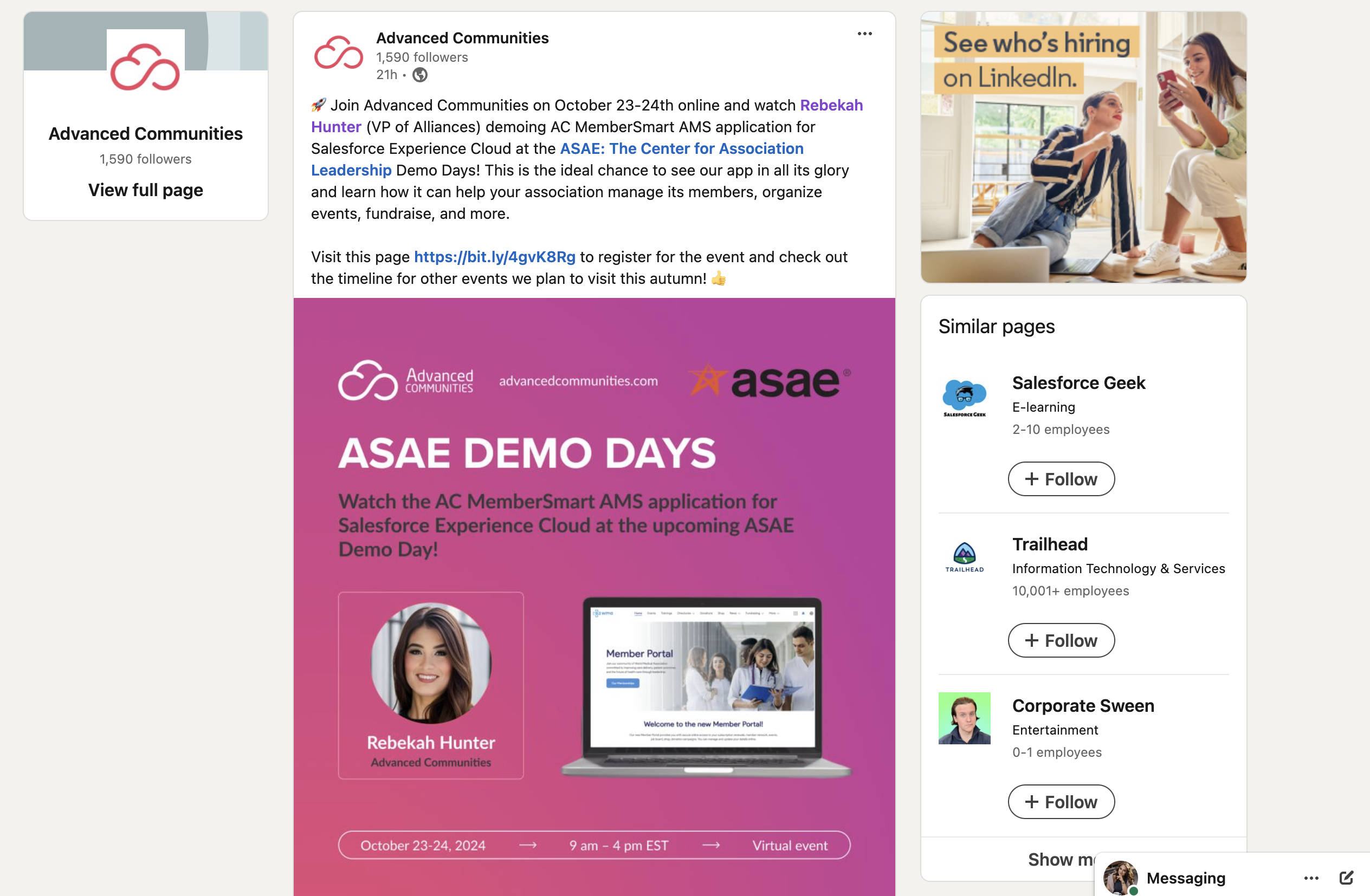
Let your creativity flow. For an Experience Cloud site, you can add a separate Speakers or Hosts tab. Do not forget to add photos for a human touch. This functionality is also available in the AC Events Enterprise package.
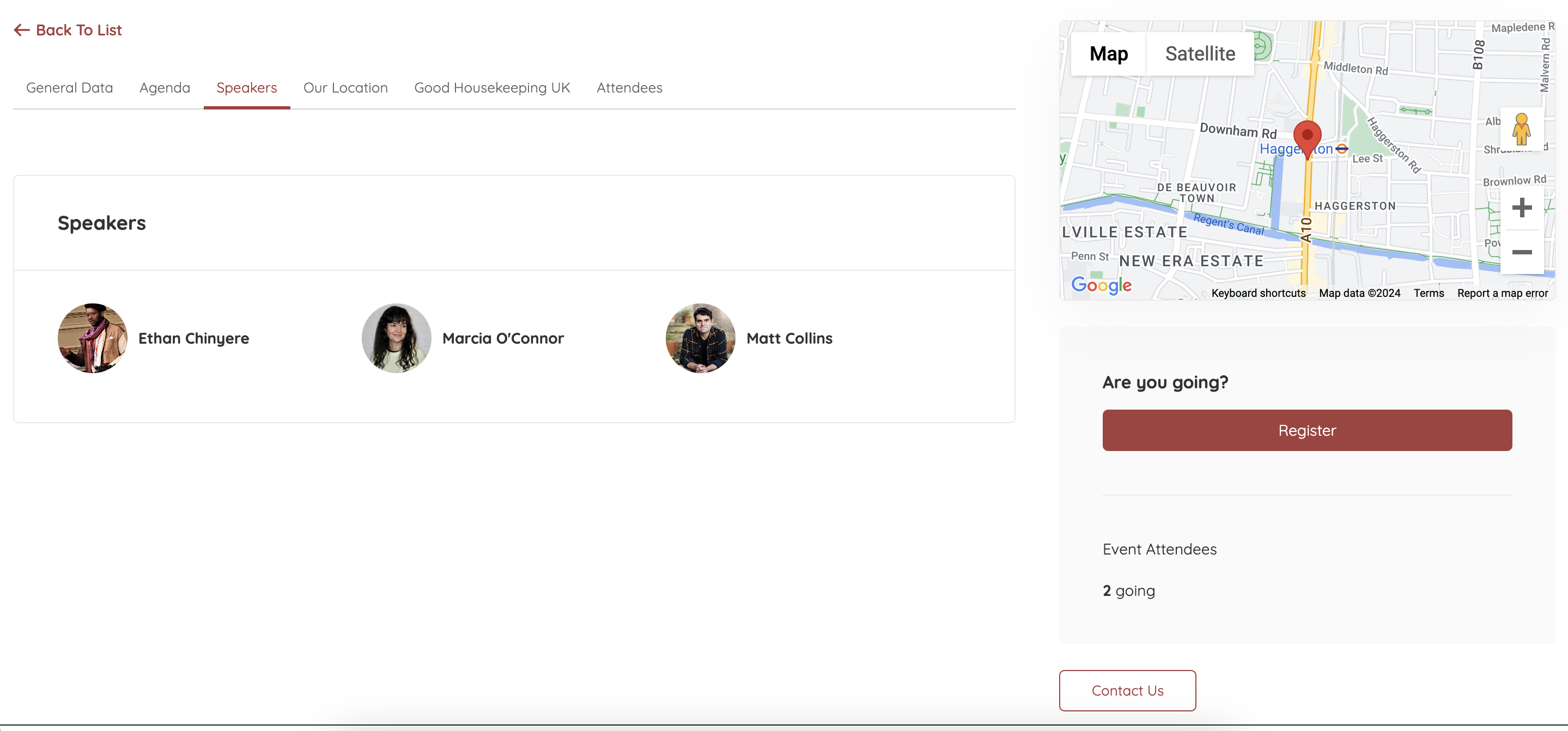
Another tried-and-tested option is adding a dedicated banner to a newsletter. This is one of the webinar invitations from Atlassian that landed in my inbox the other day:
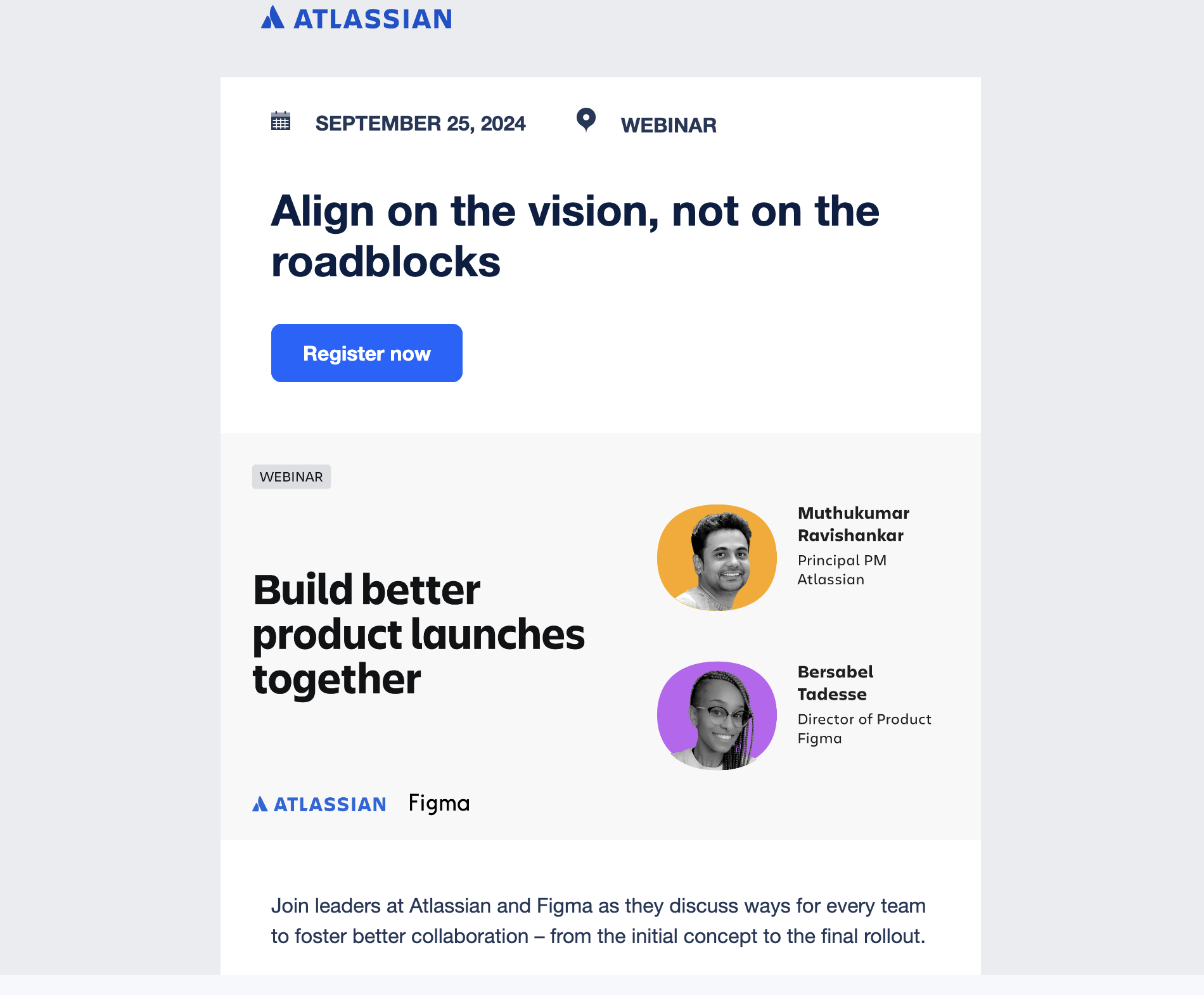
Stage 5. Go Live
The moment you’ve been waiting for – showing your event to the world. In fact, this is a true milestone for event planner that is paramount for the overall success. In this stage, you have to concentrate on several areas, such as:
- Tap into your Salesforce org and keep close tabs on the analytics in real-time;
- Ensure a smooth check-in process (for online events, consider a stable Internet connection so that every attendee can actually join the event);
- Have a dedicated troubleshooting team in case something goes wrong (outage, equipment failures, etc.).
Stage 6. Review After the Event
Once the buzz died down, an event project manager should gather all the materials and tally the results. Why bother? The rule of thumb is that lessons learned are better seen when you have all the data at your fingertips.
Good thing that Salesforce lets you collect and monitor real-time info, generating customizable dashboards. What is the most popular event? How many people joined? How many of them churned? You can get these and other insights with AC Event Enterprise within the Salesforce platform. A lifesaver for event project managers!
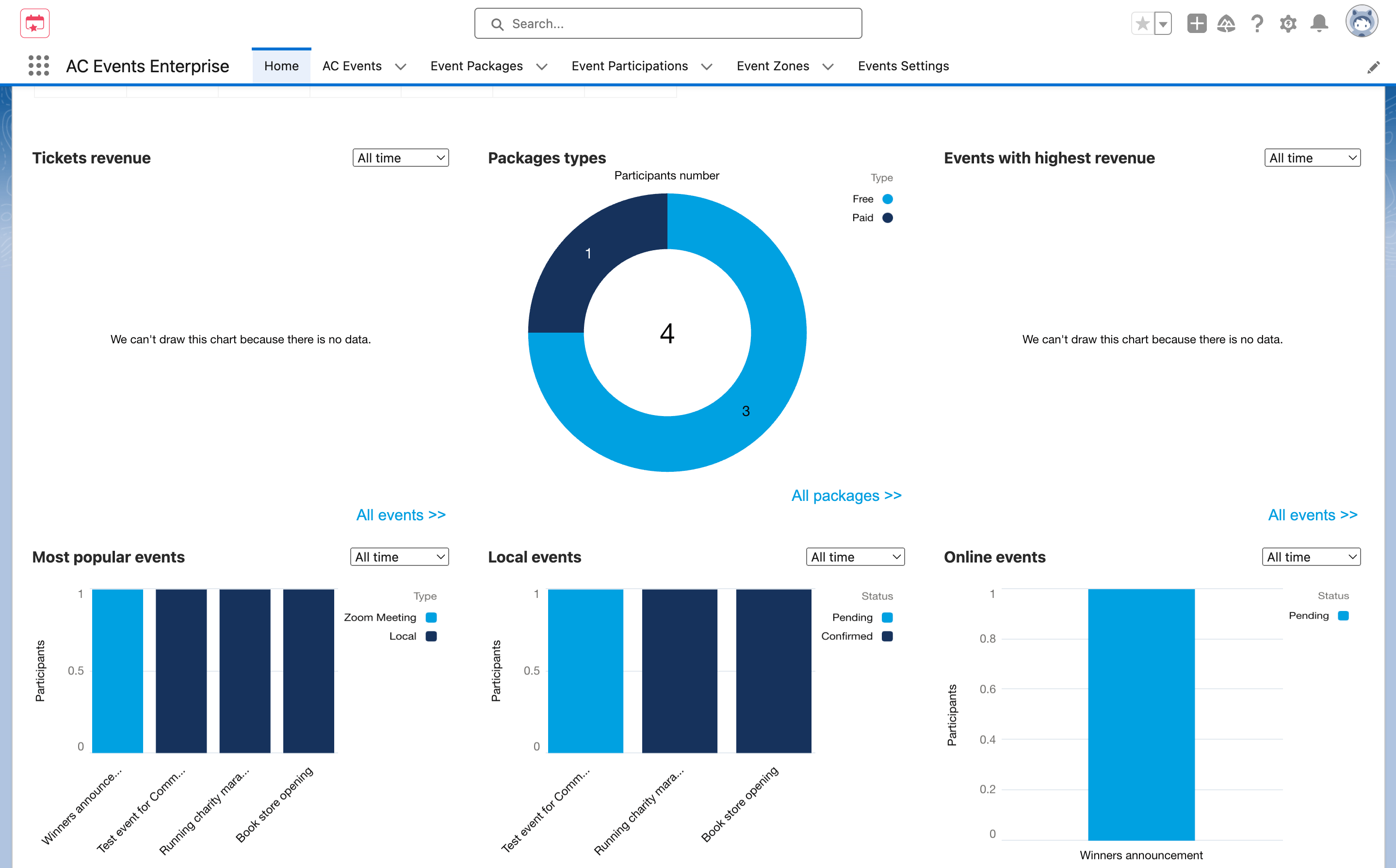
There is another hack: holding regular checkup calls with marketing and sales teams. You can discuss attendee’s feedback, document insights for future references, and ensure the event goals are achieved.
Event Project Management Checklist
We want to guide you through the event planning project management, so here is a comprehensive checklist you can share with your project manager:
- Plan an event budget using Salesforce’s financial tracking features;
- Allocate resources so that each team member is involved in the process;
- Select a venue if it is an in-person event (you can even pay a visit to it if possible to take some photos and market your event properly);
- Launch your marketing spaceship – create segmented newsletters for better audience reach, monitor leads & conversions, promote the event on socials, and send reminders;
- Manage check-in and registration with Salesforce add-ons (such as AC Events Enterprise);
- Conduct a post-event survey to gather attendees feedback and highlight areas for improvement.
Wind It Up
Just like any project, events have their own intrinsics. Project management for event planners requires scoping, ideating, implementing, and reviewing. Everything from budgeting to event follow-ups counts. However, this is half the battle.
While you have to flawlessly organize everything, you should also take care of the technical side of the project. Feeling stuck there? Advanced Communities has got you covered: drop us a line and we’ll help you arrange your future events with the best-in-class Salesforce apps.
Q&A
1. What is Project Management for Events?
Project management for events comprises tasks peculiar to all-too-known project managers, such as planning, organizing, and executing an event. Plus, it ensures that all the aspects are taken care of and implemented within a pre-defined budget.
2. What is a Project Plan for an Event?
A project plan for an event involves several stages. First, there is event scoping where you gather requirements. Second, you have to choose a project methodology and adjust it to the event: if it’s iterative – go with an agile methodology. But if your gathering is totally predictive – you should opt for a waterfall framework. The next steps in the plan are leveraging decent event project management tools,
3. What is a Checklist in Event Management?
A checklist in event management is kind of logical: you start with outlining the bread and butter – your budget. The next steps come to light organically: assigning event planners, choosing a venue or an online platform, letting marketing do its magic, and conducting post-event activities an event project manager should do.





